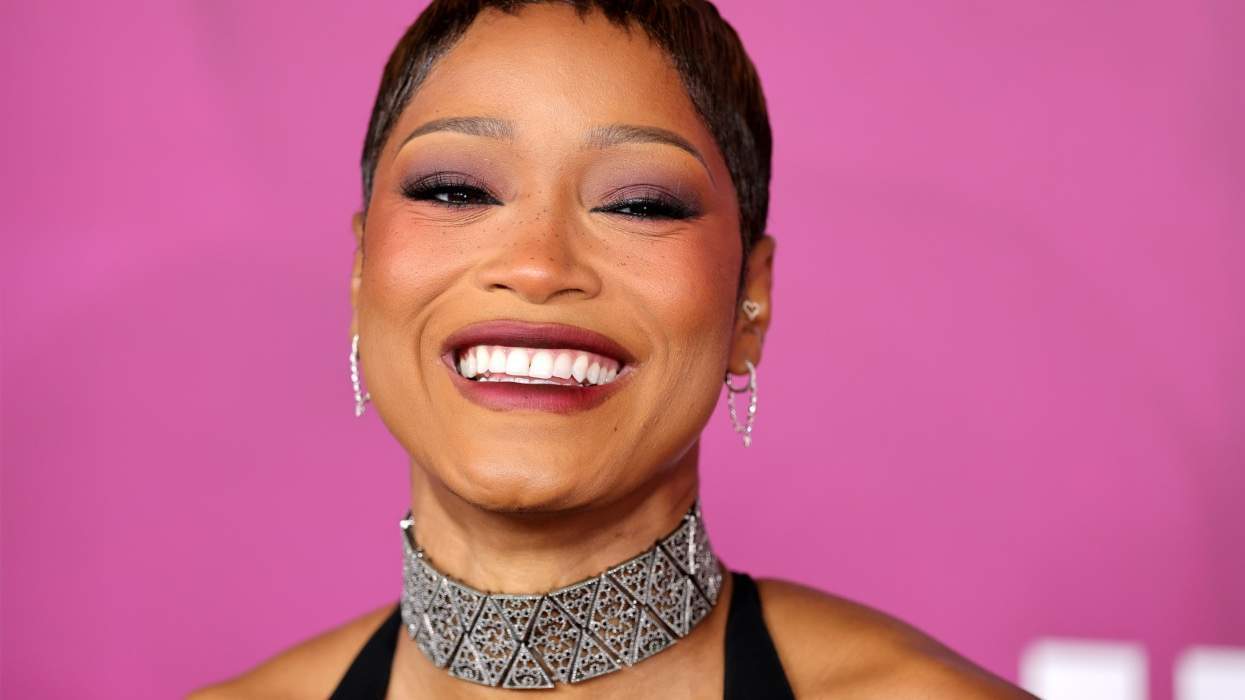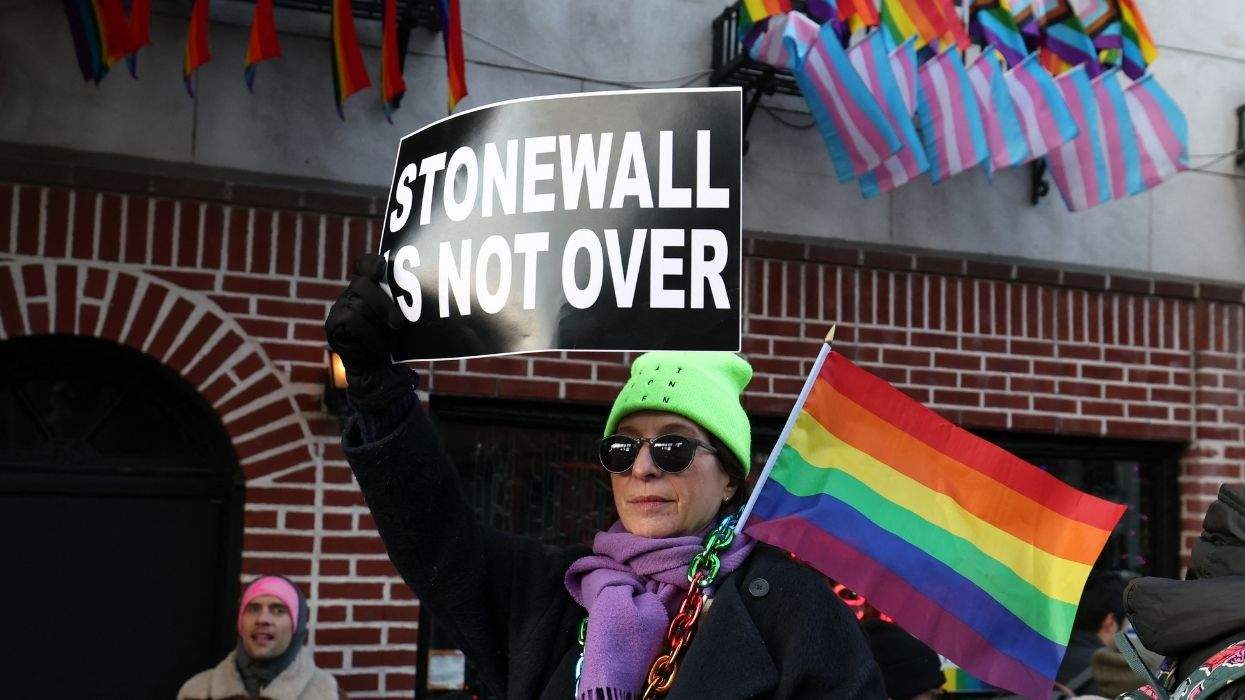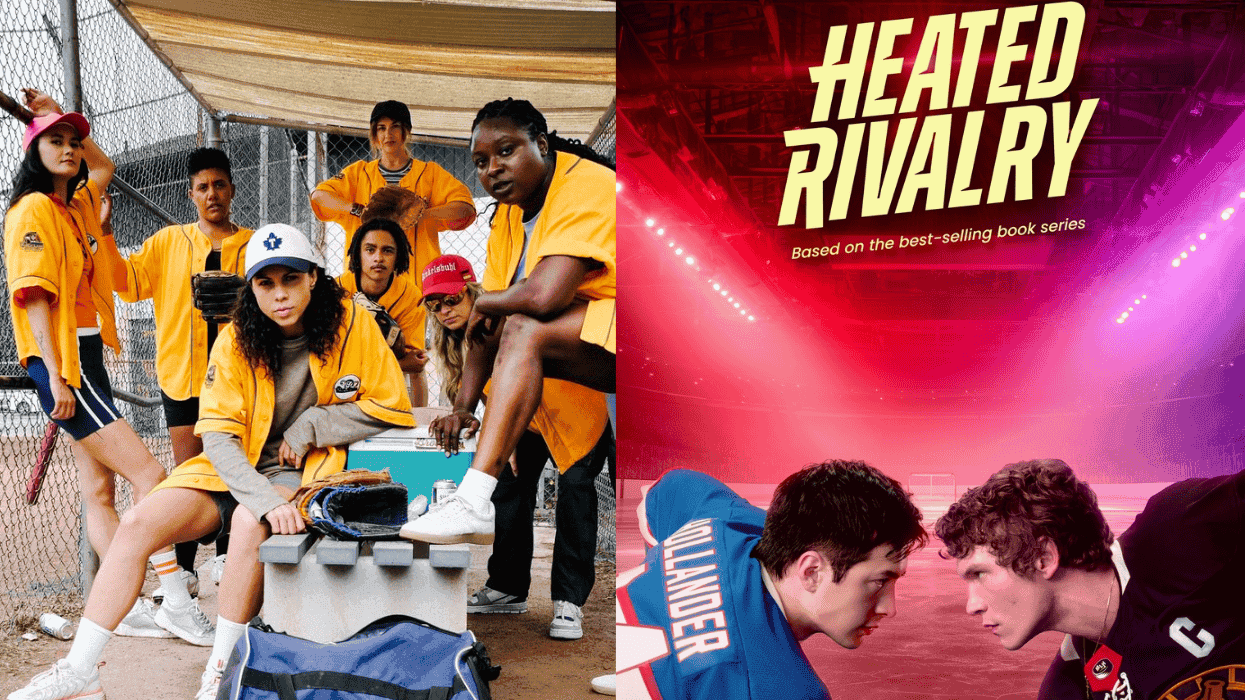Eureka O'Hara's gender is an evolving thing. Before appearing on Seasons 9 and 10 of RuPaul's Drag Race, O'Hara lived as trans woman for a number of years, ultimately realizing that that was one piece of their identity, though not their full identity.
"I think the trans person that I was is still a huge part of who I am now," they say. "It was more of discovering that I'm all of these things."
Eureka O'Hara, the self-proclaimed "Elephant Queen," talks on the LGBTQ&A podcast this week about detransitioning, the journey they're still on with their gender, and how being raised by a "six-foot, thick German lady" spawned a lifelong love for bigger women.
The full interview with Eureka O'Hara is available on Apple Podcasts.
Jeffrey Masters: Can you just talk about your early experience of gender and what originally led you to think that you might be a trans woman?
Eureka O'Hara: I think it was more of discovering that I'm all of these things. I think the trans person that I was is still a huge part of who I am now. It's just a more elevated self-perception. That's where gender neutrality comes in.
I had a drag mother who was trans. When I decided to live as trans, my life became so much easier because when you're a drag queen and you live as a boy outside of drag, you basically having to maintain two completely different people, emotionally and monetarily. You have to have a wardrobe for both. There's different self-care for your male self versus your female self. So my life became a little easier just living as a woman in a way.
JM: What was that decision like to realize "trans woman" was not the best descriptor?
EO: I broke up with... Josh was his name. He turned out to be very just vicious -- a sick person, sadly. That kind of wore off on me, I think. I got very depressed, really distraught. I didn't know how to maintain myself, but I just got to a really dark place and I got kind of suicidal. That's when I realized, Oh my god, if you're literally thinking about hurting yourself because of your living situation or your lifestyle, maybe you need to reconsider something.
My real name is David. So in my mind, I thought, "David has never really had a real chance at adulthood really," because I transitioned shortly after turning 18, so I was like, "Maybe I need to take a step back and reconsider this person."
I was really locally famous for drag, but I was also known for being a really open, advocating trans person for several years, in every organization in our town so a lot of people were really disappointed. That was the hardest part.
JM: Being trans was a big piece of your identity that you were known for.
EO: Especially a lot of the trans people that I was friends with, they were very offended. People don't understand what detransitioning means. It's so hard to get people to understand what transitioning is, so saying you want to detransition devalues someone else's transition potentially, so it's a really sensitive subject.
JM: That's why I appreciate you clarifying that it was more about your gender continuing to expand.
EO: It's something I had to discover too, really, because I was confused. I was like, Wait, was I a fraud? Was it for a boy? Was it because I didn't feel attractive as a boy? What were the real reasons?
But over time, discovering who I am outside of my trans persona, I was "D" for the longest time. Even my family didn't call me David at first because they were so used to calling me D. My trans name was Erica, so it was another inflection of Eureka. But my real name was David, so my family called me D as a middle ground and that's pretty respectful considering, coming from East Tennessee.
JM: What do they call you now?
EO: They still call me D actually to this day, they're just so used to it.
It's hard when you're gender-neutral or nonbinary because people get even more confused. They're like, "Oh, so are you they/them/theirs? Are you going to be offended if I call you he? Are you going to get offended if I call you she?" I think that's on a case-by-case basis. It's really just all about personal preference.
JM: What pronouns do you use now?
EO: I use all of them. Most people just call me Eureka. So even though I might present as a boy that day, people still just know me as Eureka most of the time. I don't necessarily get offended. Some people are very adamant about calling me David or trying to have that separation. I noticed it with artists a lot that are used to having characters. They'll go out of their way to call you by your government name.
JM: Do you consider Eureka to be a separate person?
EO: No. I don't know. I like to separate from Eureka because she's such a big part of my life.
Eureka helped me find confidence in myself as a non-binary person, gender-neutral person, and male-presenting, in general. I have a lot to thank that character for and that part of my life, as well as financially. She's a huge part of who I am, but at the same time, I love my separation from her.
JM: How about the gender you're attracted to changed or evolved?
EO: That has evolved, but I think that comes with just growing up and maturing as a person. I consider myself more pansexual or demisexual, just more on an emotional level. If I connect with someone and there's that energy there, then I can find myself being sexually attracted to a person regardless if they're male, female, trans, anything.
JM: How did being raised by all women impact you growing up?
EO: Well, I was always really inspired by bigger women because my mother was a six-foot, thick German lady. I think that's where my love for bigger women came from originally.
I was taught and raised around really powerful, strong semi-masculine females -- really because my mom was such a huge and aggressive personality. Everyone knew who she was, but also really tall and affirming in size too, taking up a lot of space. I was also taught what a confident woman looked like. I was very lucky in that sense. I don't know what I learned, besides how to ultimately be a man, weirdly, even though I'm not a man, if that makes sense?
My mom always taught me how to be the right kind of man. Then I think that went into my adulthood because through my mom's illness, I've always taken care of my family because I was known as the man of the house.
JM: And you took on this "male role" of being a financial provider by making money as a drag queen.
EO: I know, I know. My mom always was so shocked by it because she thought it was going to go nowhere when I first started doing it. When I started making money and she saw me being successful, she was all about it. She was just like, "OK, if you're happy, do it."
Even when I lived as a trans person, I was never stripped of my position in the family, weirdly. I was very lucky, in that sense because my mom taught us very early it doesn't matter how we dress, what we look like, whatever, it's who we decide to be.
I'm luckier than I think sometimes. We probably all are.
Click here to listen to the full podcast with Eureka O'Hara.
LGBTQ&A is The Advocate's weekly interview podcast hosted by Jeffrey Masters. Past guests include Pete Buttigieg, Laverne Cox, Niecy Nash, and Roxane Gay. Episodes are released every Tuesday.















